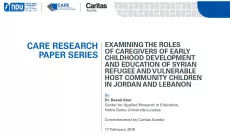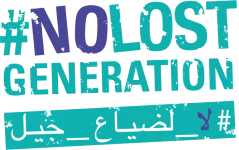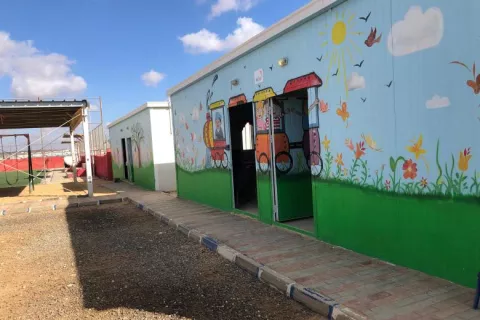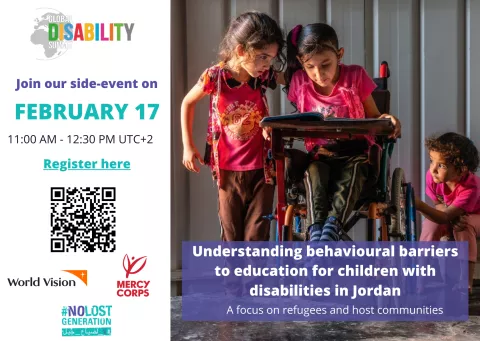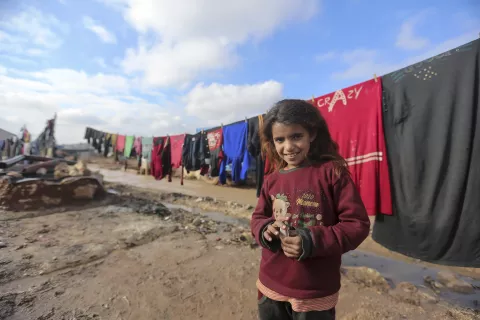Caregivers' role in early childhood development and education of Syrian refugee and host community
Caritas Austria and Notre Dame University
Highlights
The study is the third of a series of three commissioned by Caritas Austria in order to inform the development and implementation of the Regional Holistic Education Programme (RHEP) designed and launched by Caritas Austria in 2015 in Lebanon and Jordan.
The qualitative study examined relationships between caregivers and Syrian refugee and vulnerable host community children in Jordan and Lebanon and how these relationships foster or hinder an early childhood education (ECE) for healthy development. The young children are in early childhood from infancy up to eight years old. Caregivers included parents, teachers, school counsellors, psychologists and social workers. Through purposeful and opportunistic sampling, we visited four formal schools in Jordan and, in Lebanon, seven formal schools and seven non-formal education initiatives provided by civil society organizations.
Information was gathered from three main sources: (1) education staff like teachers, principals/directors, school counsellors and psychologists, (2) parents and (3) children. Semi-structured interviews and observations revealed complex and often overlooked cultural layers behind the interactions between caregivers and children in their early years.
The findings allow us: (1) identify evidence-informed approaches for caregivers and in vulnerable families to provide the optimal support for children's learning, growth and psychosocial/social-emotional well-being, and (2) describe how organizations can support caregivers in providing vulnerable children the necessary support for a healthy, stimulating and rehabilitative upbringing.
